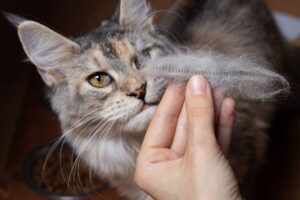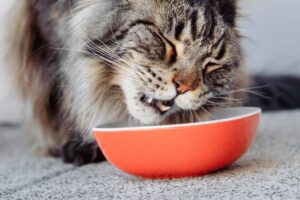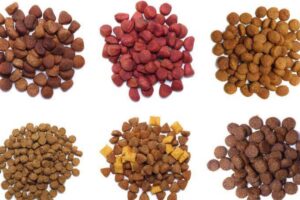Homemade Food for 1-Month-Old Kittens:
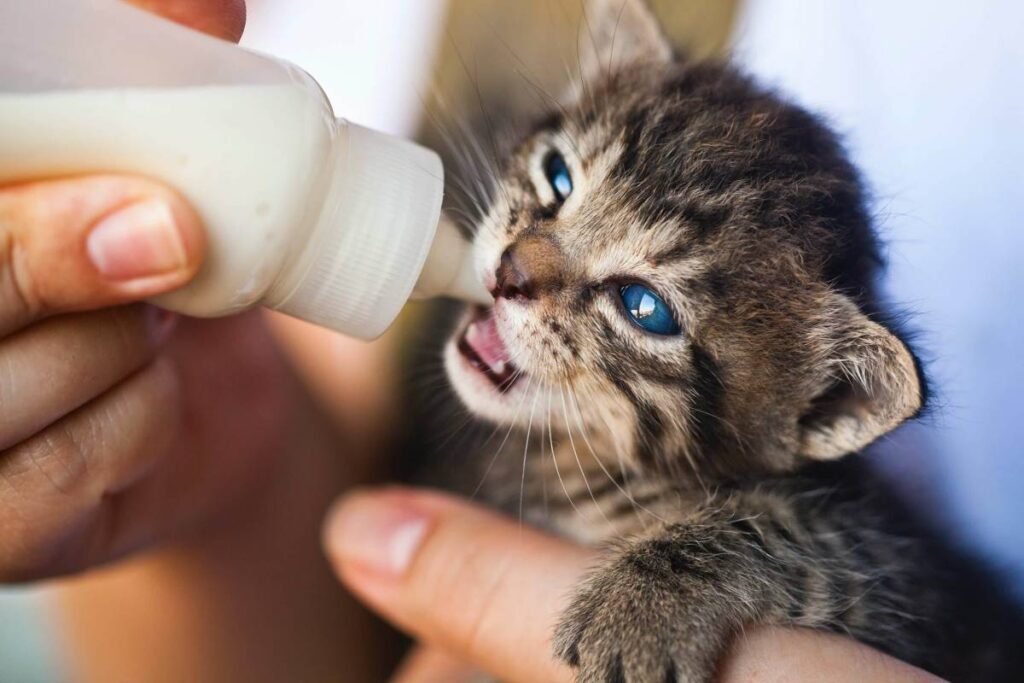
Feeding a 1-month-old kitten requires special attention and care, as their delicate bodies are still developing and require the right balance of nutrients for optimal growth. While mother’s milk is the ideal food source for kittens, there may be situations where homemade food becomes necessary. In this article, we will delve into the understanding of kitten diets, their nutritional requirements, foods to avoid, and explore non-commercial homemade food for 1-month-old kittens.
Section 1: Understanding Kitten Diets
The Importance of Mother’s Milk:
Mother’s milk is the most vital source of nutrition for newborn kittens. It provides essential nutrients, antibodies, and growth factors necessary for their growth and development. Mother’s milk is rich in proteins, fats, vitamins, and minerals, which are crucial for building strong muscles, bones, and a healthy immune system. Additionally, nursing helps foster the bond between the mother cat and her kittens.
It is highly recommended to allow kittens to nurse for as long as possible. Ideally, kittens should continue nursing until they are at least 8-10 weeks old. This ensures they receive the necessary nutrients and antibodies that contribute to their overall health and well-being.
In other words what we are trying to say, is that the Kittens should ought to be drinking their mother’s milk for the first 2 months. No human intervention should normally take place (with regards to food).
However, there are certain cases where this is not possible. Such as when the mother is not available (or alive), or suffers from some sort of condition which prevents her from producing milk.
Transitioning to Solid Food:
Around 1 month of age, kittens may start showing interest in solid food. However, it is important to note that their digestive systems are not fully developed at this stage. The transition to solid food should be gradual, starting with small amounts offered alongside mother’s milk.
Signs of readiness for solid food include increased curiosity about their mother’s food, attempting to lick or bite at solid objects, and being able to lap liquid food. It is essential to observe the kittens’ readiness and introduce solid food at their own pace to prevent digestive issues or reluctance to eat.
Typically however, kittens are not introduced to solids until they are 2 months of age.
Section 2: Nutritional Requirements of 1-Month-Old Kittens
Essential Nutrients for Growth:
For 1-month-old kittens, a balanced diet with the right proportion of nutrients is crucial for healthy growth. Protein is particularly important as it aids in muscle development. Fats provide energy and aid in the absorption of fat-soluble vitamins. Carbohydrates supply energy and fiber for digestion. It is essential to ensure that the diet provides an appropriate balance of these nutrients.
Vitamins and minerals play a vital role in the overall health and development of kittens. Vitamin A is important for vision and immune function, while vitamin D aids in calcium absorption for bone growth. Minerals such as calcium, phosphorus, and magnesium are essential for skeletal development.
To determine whether your kitten is healthy or not, check its belly. It should be slightly bulging, round and plump. That’s not a sign of being overweight, as some might believe.
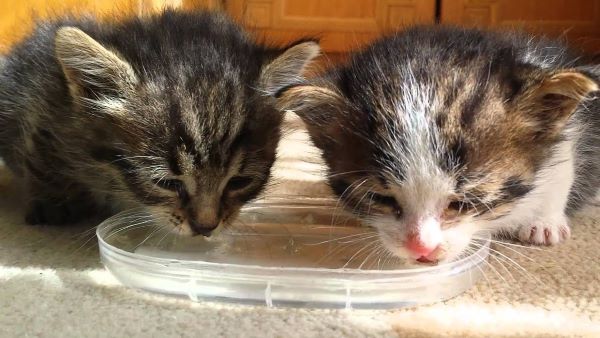
Hydration and Water Intake:
Proper hydration is essential for a kitten’s overall health. While kittens obtain most of their hydration from their mother’s milk, it is important to introduce them to water gradually. Around 4 weeks of age, kittens can start drinking small amounts of water from a shallow dish. Fresh, clean water should always be available for the kittens to drink as they grow.
Water is basically the first “homemade” food that your kittens should be introduced to.
To teach kittens how to drink water, let them observe their mother while she drinks. They will likely try to imitate her behavior. You can also gently move their paws or mouth towards the water to let them get a feel for it. Their instincts will kick in soon enough.
Section 3: Foods to Avoid for 1-Month-Old Kittens
Solid Foods:
Solid foods, such as chicken, rice, and other homemade options, are not suitable for 1-month-old kittens. Their digestive systems are not adequately developed to handle solid food at this stage. Offering solid food too early can lead to digestive upset, diarrhea, and nutritional imbalances.
Toxic Foods for Kittens:
Certain foods are toxic to kittens and should be strictly avoided. Chocolate, grapes, raisins, onions, garlic, and products containing caffeine are all potentially harmful to kittens. These foods can cause serious health issues such as poisoning, organ damage, and even death. It is crucial to keep these foods out of a kitten’s reach.
Feeding Kittens when Mother Cat Milk not Available
In some cases, a mother cat may be unavailable or unable to produce milk to feed her kittens. When this occurs, it is important to take appropriate measures to ensure the well-being and nutrition of the 1-month-old kittens. Ideally, the second best choice after mother’s milk is commercial milk formula specifically formulated for kittens. However, if commercial options are not accessible, there are homemade alternatives that can be considered as a last resort.
Commercial Milk Formula (Second Best Choice):
Commercial milk formulas designed for kittens are the closest substitute for mother’s milk. These formulas are carefully formulated to provide the necessary balance of nutrients for healthy growth and development. They are readily available in pet stores, veterinary clinics, or online. When selecting a commercial milk formula, opt for one that is specifically formulated for kittens, as regular cow’s milk or human infant formula will not provide the appropriate nutritional composition for kittens.
When using commercial milk formula, it is crucial to carefully follow the manufacturer’s instructions for preparation and feeding. Dilute the formula as recommended and pay attention to the feeding frequency and temperature guidelines. Use feeding bottles and nipples specifically designed for kittens to ensure proper feeding and prevent aspiration.
Homemade Options (Last Option):
If commercial milk formula is not accessible, homemade options can be considered as a last resort. It is important to note that homemade formulas should only be used under veterinary supervision and as a temporary solution until a suitable commercial formula becomes available.
Here are a few homemade options for feeding 1-month-old kittens:
Kitten Formula Recipe 1:
- 8 ounces of canned evaporated milk (not condensed milk)
- 8 ounces of water
- 2 egg yolks (no whites)
- 2 tablespoons of plain yogurt (without artificial sweeteners)
- 1 teaspoon of light corn syrup
To prepare this formula, mix all the ingredients thoroughly until well-blended. Warm the mixture to approximately 100°F (37°C), as kittens prefer warm milk. It is crucial to use a feeding bottle and nipple specifically designed for kittens to feed them.
Kitten Formula Recipe 2:
- 1 cup of whole milk
- 2 egg yolks
- 1 teaspoon of vegetable oil or melted butter
- 1 drop of pediatric liquid vitamins (without iron)
Combine all the ingredients and mix them well. Warm the mixture to approximately 100°F (37°C) before feeding it to the kittens. It is important to note that whole cow’s milk should only be used if no commercial or kitten-specific milk formulas are available.

Preparation and Feeding Guidelines:
When preparing homemade kitten formula, it is crucial to follow proper hygiene practices to prevent contamination and ensure the kittens’ health. Here are some guidelines to consider:
- Sterilize all utensils, bottles, and nipples used for formula preparation.
- Prepare fresh formula for each feeding and discard any leftovers.
- Warm the formula to an appropriate temperature (around 100°F or 37°C) before feeding. Use a thermometer to ensure accuracy.
- Use a feeding bottle and nipple specifically designed for kittens. These bottles have smaller openings and softer nipples to facilitate proper feeding and reduce the risk of aspiration.
- Feed the kittens in an upright position, cradling them gently. This helps prevent choking and allows them to swallow comfortably.
- Monitor the kittens’ weight gain, overall health, and feeding behavior. If any issues or concerns arise, such as inadequate weight gain or digestive problems, consult a veterinarian immediately.
It is important to remember that homemade formulas should only be used as a last resort and under veterinary guidance. They are not a replacement for mother’s milk or commercial kitten formulas, as they may not provide the precise nutritional balance required for optimal growth and development.
Section 5: Frequently Asked Questions (FAQs)
Q.1. Can I give my 1-month-old kitten regular cat food?
No, regular cat food is not suitable for 1-month-old kittens. Commercial cat food is formulated to meet the nutritional needs of adult cats and may not provide the specific requirements of growing kittens. It is best to consult a veterinarian for age-appropriate food recommendations.
Q.2. Signs that my 1-month-old kitten is not receiving proper nutrition?
Signs that a 1-month-old kitten may not be receiving proper nutrition include stunted growth, weakness, dull coat, decreased appetite, and digestive issues such as diarrhea or constipation. If you notice any of these signs, it is important to seek veterinary attention promptly.
As mentioned earlier, your kitten should be plump and have a rounded belly that sticks out slightly. That is a sign of a healthy kitten (generally speaking).
5.3 Can I give my 1-month-old kitten cow’s milk?
No, cow’s milk should not be given to 1-month-old kittens. Cow’s milk lacks the appropriate balance of nutrients required for kittens, and it can lead to digestive upset and diarrhea. It is best to provide kittens with their mother’s milk or a veterinarian-recommended kitten formula.
Conclusion:
Feeding 1-month-old kittens when a mother cat is not available or unable to produce milk requires careful consideration and appropriate alternatives. Commercial milk formulas specifically formulated for kittens are the second best choice after mother’s milk.
If commercial options are not accessible, homemade food for 1-month-old kittens can be considered as a last resort, but only under veterinary supervision. Ensure proper hygiene, follow the recipes accurately, and monitor the kittens’ health closely.
By providing suitable nutrition and attentive care, you can help the 1-month-old kittens thrive during this critical stage of their development.
